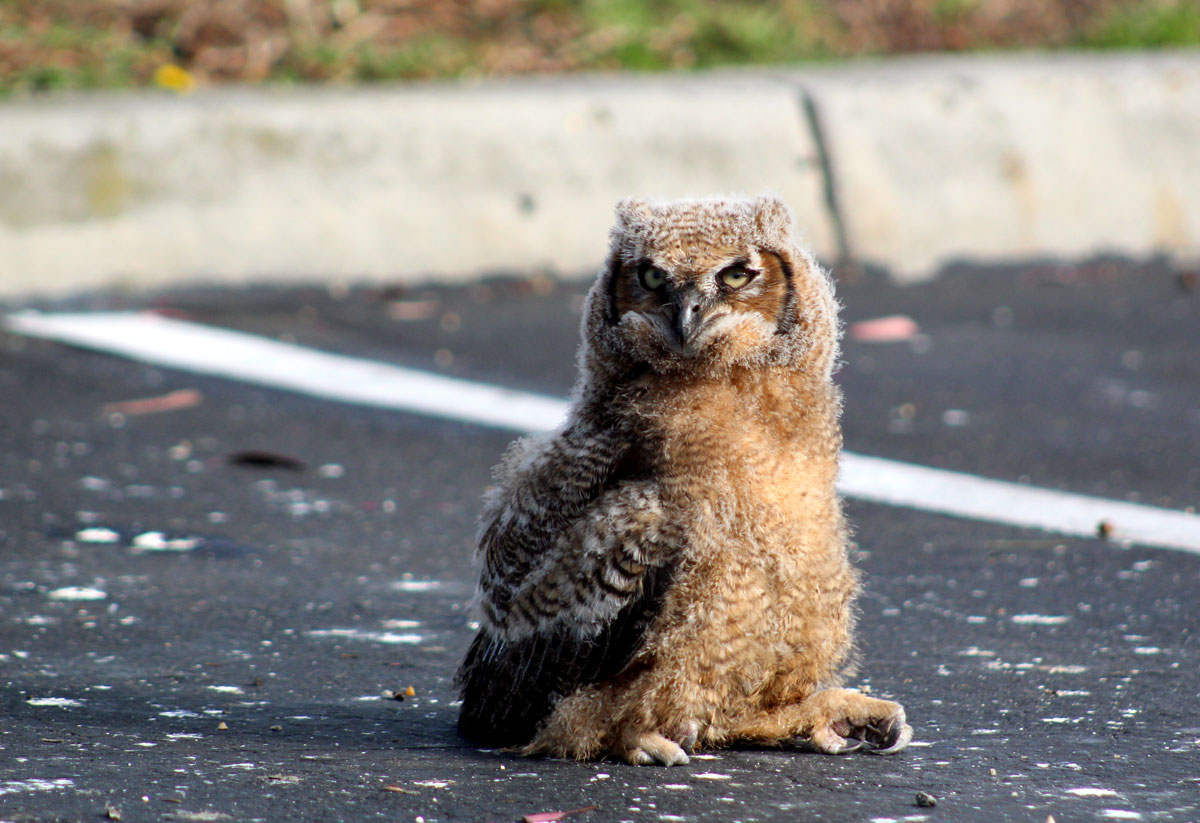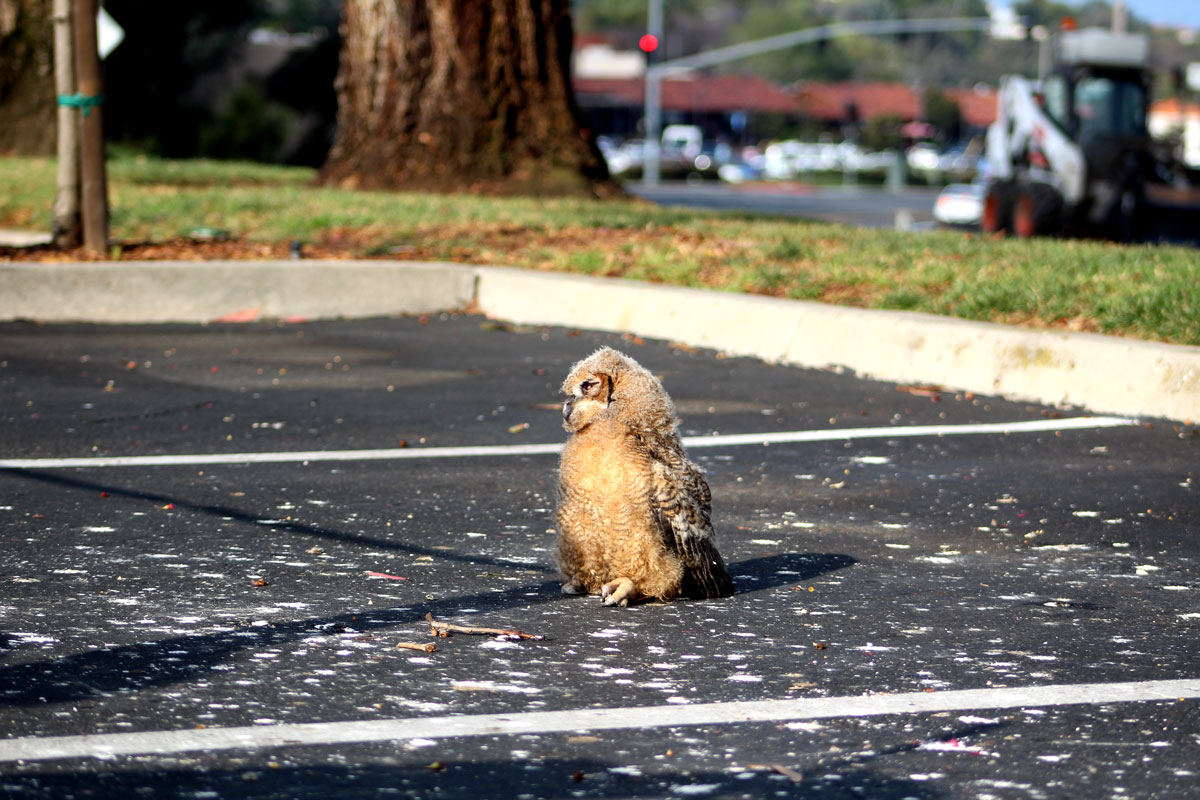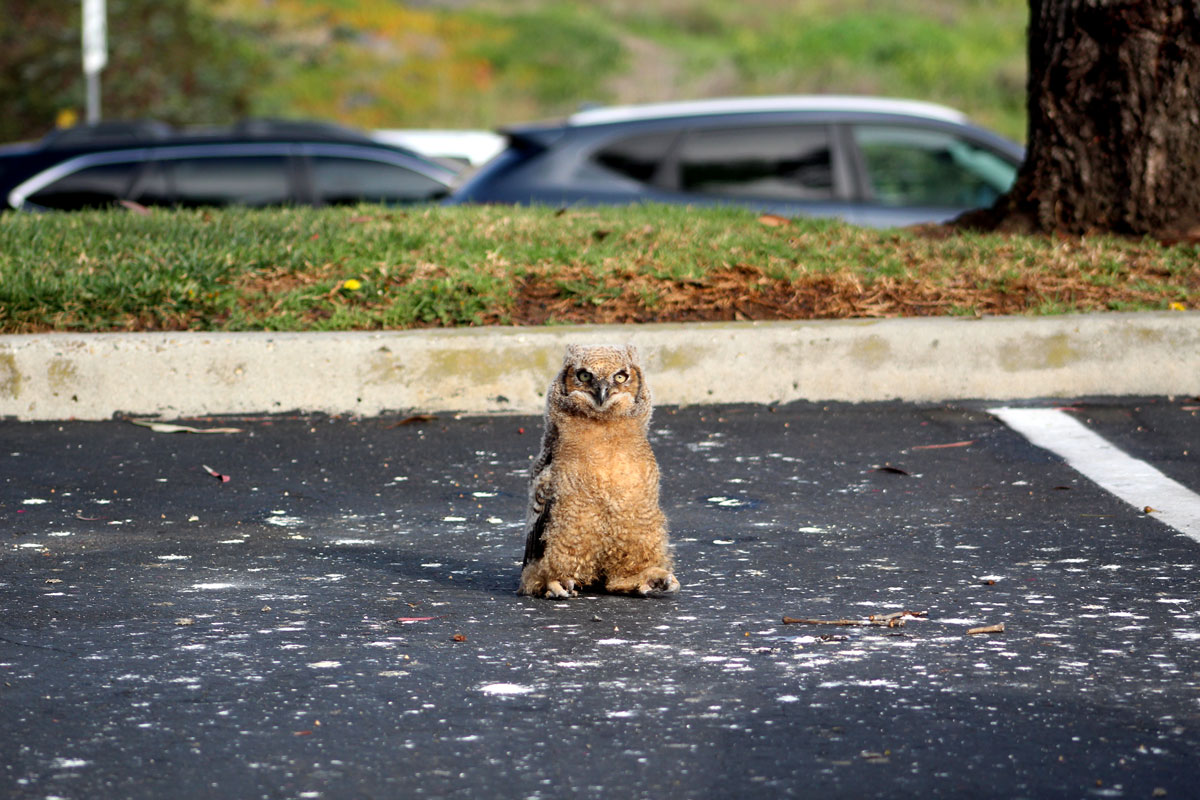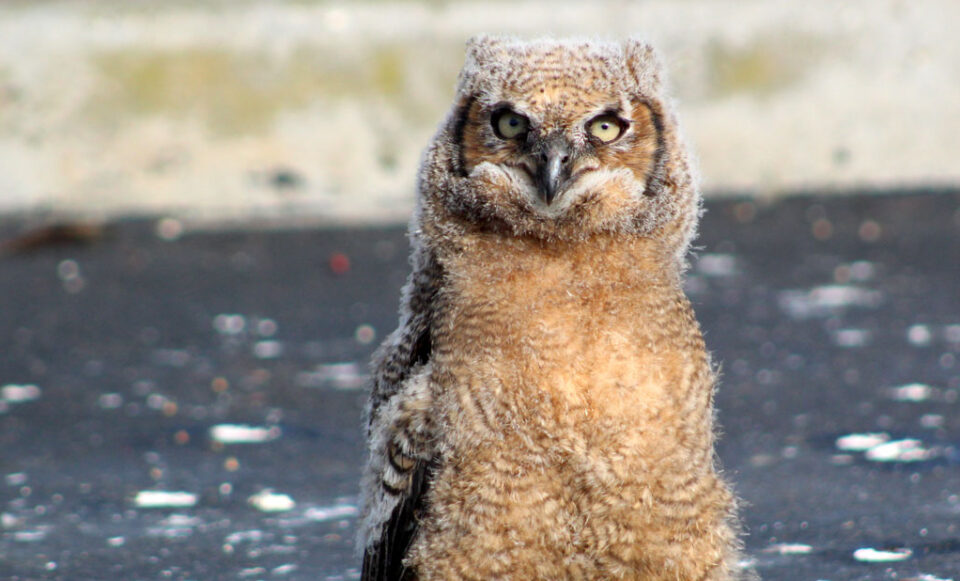A juvenile great horned owl found unable to fly in the parking lot of an Encinitas business complex was recovered on Feb. 28 by the San Diego Humane Law Enforcement team and brought to the Bahde Wildlife Center for intensive care.
According to spokesperson Nina Thompson, the Humane Society received a report of an owl sitting on its hocks in a parking space at approximately 8:40 a.m. on Wednesday morning. Humane Law Enforcement officers immediately responded to the call and recovered the owl from the North Coast Business Park parking area at 531 Encinitas Boulevard.
The nocturnal bird was then transported to a wildlife rescue center in San Diego.
An initial medical exam revealed the owlet of unknown gender was dehydrated, pale and thin, with some bruising, Thompson told The Coast News. The bird is currently in quarantine and under close observation by the Project Wildlife team.



Over the next 48 hours, wildlife rescue personnel will supply the owl with fluids and medicine before determining the next steps. Thompson said the hope is for the owl to recover and be returned to its habitat as quickly as possible.
“We don’t want to keep them in captivity any longer than they need to be,” Thompson said. “We want first to ensure the bird can fly, hunt, and care for itself before returning it to the same general area where it was found.”
Project Wildlife is permitted to rehabilitate wildlife by the California Department of Fish and Wildlife and the U.S. Fish and Wildlife Service and operates under a strict guide of protocols, research and veterinary consultation, according to the organization’s website.
If you find a wild animal needing care, please do not attempt to provide care yourself. Please bring the animal to a permitted wildlife rehabilitation center immediately. The San Diego Humane Society also has online information and resources on how to coexist with wildlife.
Great horned owls are the most widespread owl in San Diego County. These birds live in various habitats, from woodland and open scrub to trees, cliffs and buildings. Numerous sightings have been made in coastal North County cities, including a family of great horned owls living in a tree.



